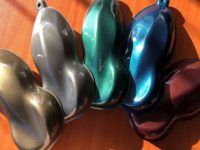


1960
Jan. 30-According to the official Soviet newspaper Izvestia, most Russian professional specialists are women.Feb. 27-Lunch-counter sit-in protests by blacks seeking to be served have spread throughout much of the South, resulting in rioting in some major cities and numerous arrests.
March 2-About 100,000 Afghans line the streets of Kabul to shower confetti on a smiling Nikita Khrushchev as he rides in an open car. Russia was a major Afghan benefactor.
May 26-Diplomatic furor over an American spy plane shot down over Russia drives East/ West relations into a tailspin. At the U.N. Security Council, Soviet Foreign Minister Andrei Gromyko charges that the U.S. could push the world to "the brink of war" by continuing its policy "of military espionage."
July 21-Sirimavo Bandaranaike, the world's first woman leader, is sworn in as prime minister of Ceylon.
Aug. 19-Frances Gary Powers, an American shot down in his spy plane over Russia, is found guilty of espionage and handed a 10-year prison sentence.
Sept. 26-Vice President Richard Nixon and John Kennedy appear in the first nationally televised debate between presidential candidates.
Nov. 9-Kennedy, elected by less than 120,000 votes, is the youngest president ever at 43, and the first Catholic.

1961
Jan. 17-In his farewell speech, Dwight Eisen-hower warns against the "military-industrial complex," saying, "The potential for the disastrous rise of misplaced power exists and will persist."March 1-President Kennedy announces the formation of a U.S. Peace Corps to aid developing nations.
April 12-The Soviet Union wins the race to place the first man in space by sending Yuri Gagarin into orbit.
April 25-Anti-Castro exiles invaded their Cuban homeland a week earlier in a failed attempt to overthrow the government. The invasion of the Bay of Pigs sparks international tension.
May 25-Following America's first manned space flight, Kennedy asks Congress to approve a program to send men to the moon.
July 2-Ernest Hemingway, winner of the Nobel and Pulitzer prizes, front-lines war correspondent and survivor of two plane crashes, commits suicide.
Aug. 31-The Berlin Wall, quickly constructed of prefabricated concrete blocks, is the Communists' answer to Germans fleeing from East to West.

1962
Feb. 20-John Glenn Jr. becomes the first American to orbit the earth.March 2-Wilt Chamberlain scores 100 points for the Philadelphia Warriors to beat the New York Knickerbockers 169 to 147.
Aug. 17-Peter Fechter, 18, dies after laying in a pool of blood for an hour as East German police watch. Attempting to defect over the Berlin Wall, he's the first to be killed for the crime.
Sept. 30-The admission of the first black student to the University of Mississippi spurs riots and a confrontation between President Kennedy and Governor Ross Barnett.
Oct. 28-A new agreement between president Kennedy and Premier Khrushchev has broken the extraordinary tension that has gripped the world for a week and eased the two nations back from the brink of nuclear war. Khrushchev agrees to stop work on missile sites in Cuba and ship the weapons back to the Soviet Union. Kennedy agrees not to invade Cuba and end the American blockade of the island.
Literature-Anthony Burgess' A Clockwork Orange, Edward Albee's Who's Afraid of Virginia Woolf?, Ken Kesey's One Flew Over the Cuckoo's Nest, Steinbeck's Travels With Charley: In Search of America

1963
Feb. 8-Described by some as a coup to purge Communists, a revolt led by the Iraqi air force topples Premier Abdul Karim Kassim.March 18-The U.S. Supreme Court rules that states must supply free legal services to poor people facing criminal charges.
April 24-The Boston Celtics win their fifth straight title.
May 18-President Kennedy sends federal troops to Alabama to establish order.
June 26-Kennedy gives his famous "I am a Berliner" speech to a million who turn out to cheer him in Berlin.
Aug. 28-About 200,000 fill Washington to demand the passage of civil rights legislation; King gives his "I have a dream" speech.
Nov. 22-President Kennedy is shot dead in Dallas; 99 minutes after Kennedy's death, Lyndon Johnson, with Jackie Kennedy at his side, is sworn in as the 36th president.
Nov. 24-Lee Harvey Oswald is shot to death by Jack Ruby.

1964
Feb. 12-Fans shriek in delight at Kennedy Airport as the Beatles arrive in America.March 14-Jack Ruby is found guilty of killing Lee Harvey Oswald and given a death sentence.
April-Ford introduces the Mustang.
July 2-The most sweeping civil rights legislation in history is signed into law.
Aug. 7-Congress gives President Johnson greater authority to strike against Communists in North Vietnam, following unprovoked attacks on American ships in the Gulf of Tonkin.
Sept. 27-The Warren Commission investigating the assassination of President Kennedy issues a report highly critical of the Secret Service.
Oct. 16-China explodes its first atomic bomb.

1965
Jan. 30-Sir Winston Churchill dies at the age of 80.Feb. 11-Johnson orders air strikes against North Vietnam in retaliation for guerilla attacks against American military installations in the South.
March 28-About 25,000 civil rights demonstrators, led by Martin Luther King, embark on a 50-mile walk from Selma, AL, to Montgomery.
March 31-In the first commitment of combat troops, Johnson orders two battalions of U.S. Marines into South Vietnam.
May 25-Cassius Clay floors Sonny Liston in 48 seconds to shouts of "Fake, fake, fake!"
July 28-LBJ sends 50,000 more troops to Vietnam.
Aug. 15-Race riots rage in Watts in Los Angeles for five days.



